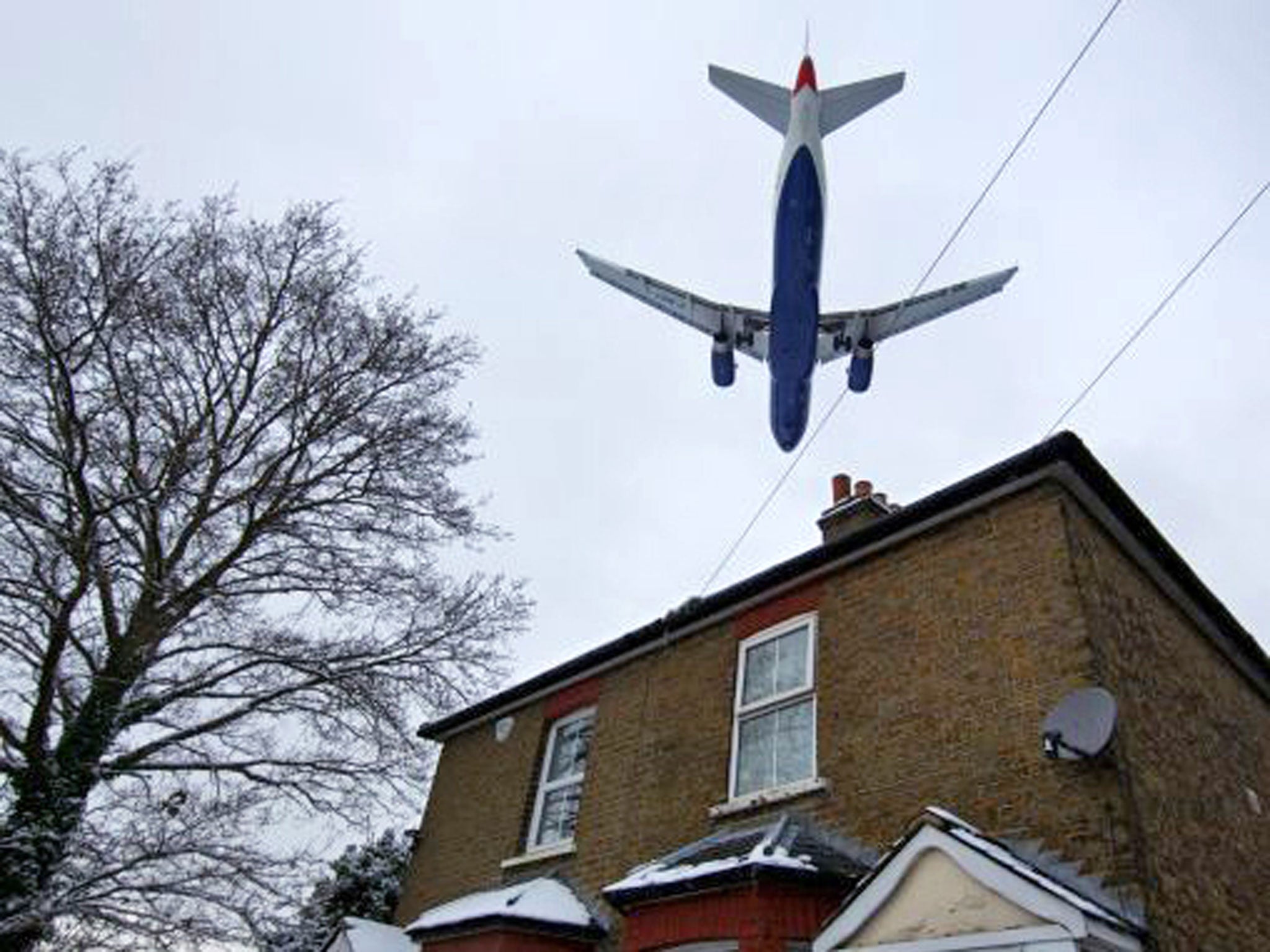Simon Calder: Ho, ho, ho! Christmas cheer to report
The man who pays his way

You never see Santa and Sir Howard Davies in the same room. 'Twas a week before the night before Christmas, and at a press conference in central London on Tuesday, the chairman of the Airports Commission was handing out gifts for long-suffering airline passengers.
The residents of west London, north Sussex, and north Kent may not glory in the prospect of a new-born runway. A landing strip might arrive in the next 17 years at the end of their road, depending on whether Heathrow, Gatwick, or the Isle of Grain is chosen as the venue for the runway that Sir Howard says we will need by 2030.
The Davies Commission will announce its preferred option in the weeks after the next general election, handing a poisoned chalice to the incoming government. There is no certainty that the prime minister of the day will join the triumph of the skies; no party has said it will unconditionally accept the runway recommendation. But delve deeper into the 228 pages of the Davies Commission's interim report (particularly the festive 33-page Appendix) and you find much to celebrate.
"All in white shall wait around," as the carol "Once in Royal David's City" so curiously ends, is surely a metaphor for the stacking that planes flying into Heathrow routinely undertake? Aircraft heading for Europe's busiest airport traditionally fly a holding pattern over beacons in each quadrant of the Home Counties before they are cleared to land. The practice helps air-traffic controllers regulate the flow of arrivals to extract the maximum capacity out of the runways.
Sir Howard is keen to stamp out stacking. If controllers can stipulate when aircraft will reach London's airspace, they can organise the landing sequence to eliminate flying around in circles, burning fuel, annoying residents and missing connections. It's not rocket science, but it has hitherto eluded the aviation industry. Sir Howard says: "There are many inefficiencies in the way airspace is managed." So he wants the air-traffic control firm, Nats, and the airlines to sort it out. Flights that turn up on London's metaphorical doorstep early or late, and rob the Home Counties of a silent night, could be penalised.
People who live near airports may have missed some comfort and joy provided by a paragraph on page 14 of the Appendix. It recommends more use of "displaced thresholds". Basically, this means moving incoming planes further away from population centres by landing them in the middle of the runway rather than close to the start. "Their approach paths would be higher and therefore less noisy than at present," says the commission. But I would rule out the practice in the case of the novel proposal for extending Heathrow's northerly runway by a mile-and-a-half, allowing take-offs and landings on the same strip of concrete. I trust they will only do this with planes pointing in the same direction.
Beware the new Santa clause for bags
You never see Scrooge and Michael O'Leary in the same room. This year, the Ryanair boss (Mr O'Leary, not the glum Dickens character) appears to have borrowed Santa's clothes, with passenger-friendly moves to make flying with Europe's biggest no-frills airline less stressful.
Yet anyone turning up at a lowly cattle shed (or whichever air terminal Ryanair is using) this weekend will find a Santa surcharge has been applied to baggage charges for the next fortnight.
As you know, airfares often cost more at Christmas and New Year. But Ryanair is dramatically increasing charges for luggage as well. The three million-plus passengers travelling with Europe's biggest budget airline any time up to 4 January will pay £25 to check in a sack of presents, rather than the normal £15.
Suppose you need to change your flight, as a number of passengers will doubtless have to do over the festive season: the fee if you ring the call centre rises by a third from £45 to £60.
Ryanair told me: "These fees reflect the relative cost of flying during high season, such as over the Christmas period." But the firm did not spell out why it might be more expensive. The airline claims its luggage fees are "entirely discretionary," and only one passenger in five checks in a case – though many more people tend to carry bags at Christmas. It's a crafty move because many Ryanair passengers travel only at Christmas, so they won't detect how the bag fees soar just as the festive rush begins.
The other big Dublin-based airline, Aer Lingus, is following suit – though with a slightly less steep festive fee increase. Ryanair's rival has decided to raise its fees for checked-by bags 50 per cent, from £12 to £18.
More festive fares
"Santa surcharges" are relatively rare in travel. A £4 supplement on London taxi fares applies from Christmas Eve until dawn on 27 December, and again from New Year's Eve to 2 January.
Should you need to travel between the capital and its main airport, Heathrow, on Christmas Day, then the usual £5.50 fare on the Underground won't apply – because the Tube isn't running. The only public transport option is the National Express coach, which will charge £10 each way on 25 December, about 50 per cent more than normal fares. But it's the first Christmas Day that the bus firm has ever run services, and it's still cheaper than that taxi. And faster than the options across in New York: Sir Howard Davies was especially scathing about transport links from America's aviation gateway into New York City, saying: "The easiest way to get from JFK to Manhattan is to walk."
Join our commenting forum
Join thought-provoking conversations, follow other Independent readers and see their replies
Comments